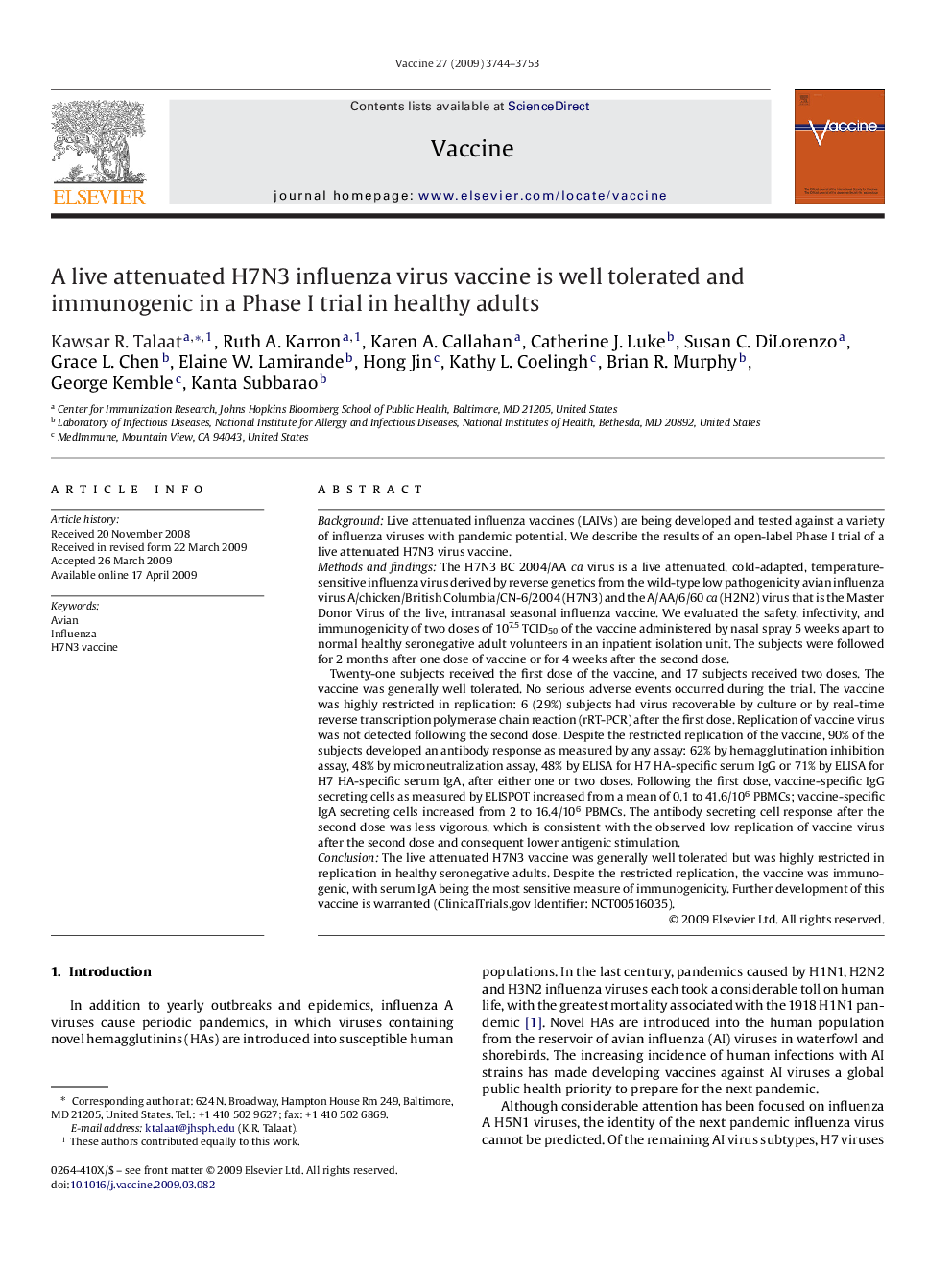| کد مقاله | کد نشریه | سال انتشار | مقاله انگلیسی | نسخه تمام متن |
|---|---|---|---|---|
| 2406401 | 1103079 | 2009 | 10 صفحه PDF | دانلود رایگان |

BackgroundLive attenuated influenza vaccines (LAIVs) are being developed and tested against a variety of influenza viruses with pandemic potential. We describe the results of an open-label Phase I trial of a live attenuated H7N3 virus vaccine.Methods and findingsThe H7N3 BC 2004/AA ca virus is a live attenuated, cold-adapted, temperature-sensitive influenza virus derived by reverse genetics from the wild-type low pathogenicity avian influenza virus A/chicken/British Columbia/CN-6/2004 (H7N3) and the A/AA/6/60 ca (H2N2) virus that is the Master Donor Virus of the live, intranasal seasonal influenza vaccine. We evaluated the safety, infectivity, and immunogenicity of two doses of 107.5 TCID50 of the vaccine administered by nasal spray 5 weeks apart to normal healthy seronegative adult volunteers in an inpatient isolation unit. The subjects were followed for 2 months after one dose of vaccine or for 4 weeks after the second dose.Twenty-one subjects received the first dose of the vaccine, and 17 subjects received two doses. The vaccine was generally well tolerated. No serious adverse events occurred during the trial. The vaccine was highly restricted in replication: 6 (29%) subjects had virus recoverable by culture or by real-time reverse transcription polymerase chain reaction (rRT-PCR) after the first dose. Replication of vaccine virus was not detected following the second dose. Despite the restricted replication of the vaccine, 90% of the subjects developed an antibody response as measured by any assay: 62% by hemagglutination inhibition assay, 48% by microneutralization assay, 48% by ELISA for H7 HA-specific serum IgG or 71% by ELISA for H7 HA-specific serum IgA, after either one or two doses. Following the first dose, vaccine-specific IgG secreting cells as measured by ELISPOT increased from a mean of 0.1 to 41.6/106 PBMCs; vaccine-specific IgA secreting cells increased from 2 to 16.4/106 PBMCs. The antibody secreting cell response after the second dose was less vigorous, which is consistent with the observed low replication of vaccine virus after the second dose and consequent lower antigenic stimulation.ConclusionThe live attenuated H7N3 vaccine was generally well tolerated but was highly restricted in replication in healthy seronegative adults. Despite the restricted replication, the vaccine was immunogenic, with serum IgA being the most sensitive measure of immunogenicity. Further development of this vaccine is warranted (ClinicalTrials.gov Identifier: NCT00516035).
Journal: Vaccine - Volume 27, Issue 28, 8 June 2009, Pages 3744–3753